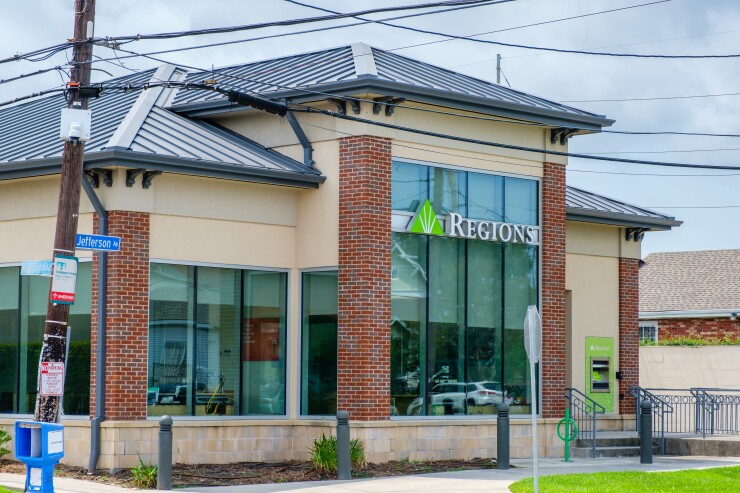Check fraud is costing Regions Financial tens of millions of dollars each quarter — the latest example of how an increasingly rampant type of financial crime is chipping away at the industry's earnings.
Executives at the Birmingham, Alabama-based company warned that operational losses related to check fraud totaled $135 million between April and September, and will continue to weigh on the bank's future earnings.
After disclosing an $82 million loss related to check fraud in the second quarter, the $154 billion-asset bank reported a second scheme that was unknown to the bank three months earlier. The latest fraud scheme led to an additional $53 million loss during the third quarter, according to Regions CEO John Turner.
Losses related to fraud at Regions were up by around 40% year over year during the third quarter, Turner told analysts Friday during the bank's earnings call.
While fraud losses are expected to "normalize" at around $25 million in the fourth quarter, those costs will continue to weigh on the bank's earnings throughout next year, he said.
"Fraud has increased dramatically in the industry. We seem to be the ones called out. It's hit us very hard," said Regions Chief Financial Officer David Turner.
"We feel reasonably confident that we're not going to see that kind of increase going forward from the schemes that we've seen," he added.
Check fraud is a term that covers a variety of financial crimes involving the use of stolen or counterfeit checks at financial institutions. It's the most common type of financial fraud reported at U.S. depository institutions, according to data from the Financial Crimes Enforcement Network.
In recent years, the U.S. banking industry has seen a
Check fraud cited in suspicious activity reports filed by U.S. depository institutions increased from nearly 97,000 instances in 2014 to more than 500,000 last year, according to Fincen data. Check fraud cited in SARs has more than doubled since 2020.
Many banks have struggled to prevent and mitigate fraud-related losses. Smaller banks in particular have felt the brunt, with some
Regions did not become aware of the fraud that resulted in a $53 million loss "until the banks on which the checks are written" notified Regions that they were invalid, which can take up to 60 days, David Turner told analysts.
Beyond the direct impact of operational losses, higher rates of check fraud have forced Regions to pay more in equipment and software costs, as well as to make other mitigation investments, which have added to the bank's noninterest expenses.
Still, the $1.1 billion in noninterest expenses during the third quarter represented a 6.6% decline from the same period last year. Noninterest income of $566 million fell by 6.5% during the same period.
Total revenue of $1.9 billion was down by 0.5% from the year-ago period, while net income of $490 million increased by 14%.
"We're going to need to even double-down on expense management for 2024," David Turner said.







